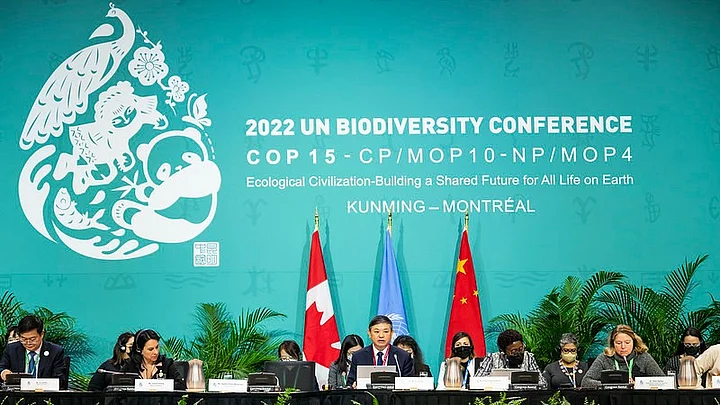In a 'landmark biodiversity agreement', nearly 200 governments on Sunday, 18 December signed an accord to halt and reverse the destruction of Earth’s ecosystems at the United Nations COP15 World Conference on Nature in Montreal.
The nations, which don't include the US or the Vatican, have committed to protecting 30% of world’s lands, inland waters, coastal areas and oceans by 2030. At present, 17% of terrestrial and 10% of marine areas are under protection.
So, what else does the deal say? The accord envisages to:
Protect 30% of the planet for nature by the end of the decade
Reform $500bn (£410bn) of environmentally damaging subsidies
Restore 30% of the planet’s degraded terrestrial, inland water, coastal and marine ecosystems
Raising $200 billion annually by 2030 from a range of sources, including public and private
Cut global food waste in half and significantly reduce overconsumption and waste generation
Reports indicate that the agreement was pushed by the China, who is also the host of the UN conference.
This is why the deal matters: According to Li Shuo, Global Policy Advisor, Greenpeace China, "The outcome demonstrates that position can forge global progress. It is a landmark deal that should propel China to embrace a bigger role in championing nature on the international stage."
"The package is by no means flawless but this is not the end. By the next CBD COP in 2024, governments have a lot of homework to turn these agreed goals into actions at home. And have no doubt that the growing movement for nature protection, the charities, NGOs, and Indigenous Peoples will keep governments to these promises.”Li Shuo, Global Policy Advisor, Greenpeace China
Meanwhile, Isabella Teixeira, former Environment Minister of Brazil added, "It is impossible to solve the climate issue without having a new relationship with nature, and this means the emergence of the leadership at COP15 of developing countries that hold great biodiversity. The entire reform of the development financial system, the so-called Bretton Woods institutions, which will be discussed next year, must deliver not only climate finance, but also biodiversity finance. Brazil's leadership, under a new political orientation, may help to converge these agendas, showing that it is possible to grow and overcome inequalities having nature as an ally. But the world also needs to have this understanding, to converge towards solutions, especially in relation to financial mechanisms."
What is COP15? It is a UN Biodiversity Conference that will bring together 196 countries that ratified the UN Convention on Biological Diversity which was originally signed in 1996.
(At The Quint, we question everything. Play an active role in shaping our journalism by becoming a member today.)
